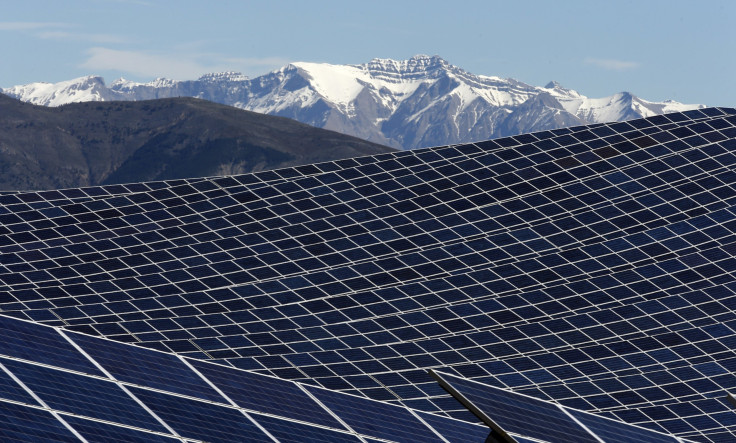Scientists Launch $150B 'Apollo' Plan To Make Clean Energy Cheaper Than Coal Power

Scientists and economists are proposing a $150 billion research program to drive down the costs of renewable energy and make it cheaper than coal-fired power. The 10-year initiative would fund research into solar and wind power, energy storage and smart-grid technologies so that countries can rapidly reduce greenhouse gas emissions from burning fossil fuels.
“There is a looming catastrophe that can be avoided,” David King, a founder of the program and former chief scientific adviser to the U.K. government, told reporters this week. “What we need to do is create clean energy that is less costly than fossil energy, and once we get to that point, we’re winning all battles.”
King said the Global Apollo Program to Combat Climate Change has already attracted “considerable interest” from a handful of countries, including the United States, some European Union members, Japan, Korea, Mexico, United Arab Emirates, India and China. Together, those nations account for more than half the world’s annual carbon dioxide emissions.
Under the program, participants would agree to spend an average of 0.02 percent of gross domestic product from 2016 to 2025 to help fund technology development projects, largely within their own jurisdictions. The Apollo initiative will have a central commission with representatives from each member country.
Renewable energy costs are already declining thanks to government investments and technology innovations. In the United States, the average U.S. price for wind power sales is about 3 cents per kilowatt-hour, compared with around 7 cents in 2008. Solar prices have plummeted from about 15 cents per kilowatt-hour a decade ago to 5 cents today, experts at the Lawrence Berkeley National Laboratory in California found.
But costs aren’t falling rapidly enough given the enormous levels of greenhouse gas emissions generated by power plants, factories and vehicles each year. Concentrations of carbon dioxide in the atmosphere are rising at about 2 to 3 parts per million annually, and in March, concentrations averaged more than 400 million parts per million for the first time, the U.S. government estimated. United Nations scientists say greenhouse gases should stay below 450 parts per million this century to limit the catastrophic effects of global warming, such as rising sea levels, more severe and frequent weather events and devastating floods and droughts.
Emissions will accelerate exponentially in the next few decades, as the world’s population surpasses 9 billion people -- unless countries can switch to carbon-free electricity and transportation sources, the group of scientists said.
“In the Cold War, the [U.S.] Apollo Program placed a man on the moon. Today we need a global Apollo program to tackle climate change, but this time the effort needs to be international,” King told reporters in London.
He said he expects participating countries will announce their commitments in November, ahead of the United Nations Climate Change Conference in Paris this December. World leaders are expected to agree on a plan to curb greenhouse gas emissions and help countries adapt to and prepare for the effects of climate change.
© Copyright IBTimes 2024. All rights reserved.





















